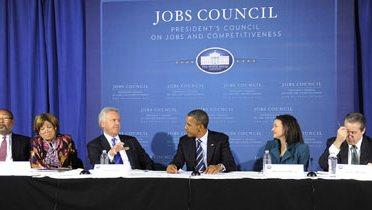Executive Summary
The Senate’s failure to achieve cloture on President Obama’s American Jobs Act in early October means that the Democrats’ landmark jobs package is dead in the water. Congressional Democrats have turned to Plan B, and are working with the White House to develop a strategy of pushing forward piecemeal job creation policy initiatives.[i] Meanwhile, Senate Republicans are reportedly preparing to introduce their own jobs package.[ii]
The Democrats’ package is comprised of sound economic policies backed by solid empirical evidence that suggests that they will, in fact, achieve the ultimate objective of creating or saving jobs. In contrast, the Republicans’ suggestions are a conservative ideologue’s dream, a redesign of the policy landscape that deregulates the economy, pours federal dollars into the oil industry, and remakes the tax code in favor of corporate interests and the wealthy. The parties have not placed co-equal competing options on the table; one party’s set of ideas is simply far more relevant than the other’s at achieving the goal of reinvigorating the labor market.
Honest Republicans know this. After all, as the President pointed out in his speech introducing the jobs package earlier this fall, all of the policies in the American Jobs Act received bi-partisan support at one point or another. In a different time, congressional Republicans recognized solid economic policy when they saw it, and were willing to attach their names to it. The current political environment is noteworthy, however. Conservative partisanship has grown so intense that even reasonable economic policy proposals can’t receive the support they deserve simply because a Democratic President and his allies in Congress have attached their names to the ideas.
So Washington is gridlocked, once again. Given the deteriorating tone of political debate over the last several years, perhaps this should come as no surprise. But the stakes of the current policy debate are very high, as the economy – and the labor market in particular – limps forward toward the next fall’s elections. The costs of inaction on the job creation front are enormous, and, in many cases, quantifiable. Those costs tally along two separate ledgers: economic costs and political costs. This brief provides an overview of these two sets of costs of inaction, and offers recommendations for a path forward.
[i] Boley, Carey. October 12, 2011. “Democrats Press Jobs Plan in Pieces After Hitting Wall.” Wall Street Journal.
[ii] Raju, Manu. October 12, 2011. “Senate GOP unveils its jobs agenda.” Politico.




